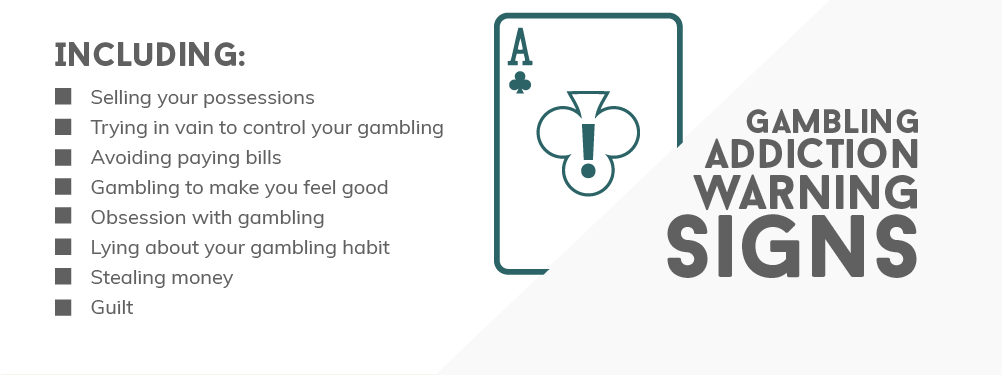Warning Signs Of Compulsive Gambling

Many people view problem gambling as a “hidden addiction.” That’s because unlike substance use disorders, which have more obvious signs — a smell on the person’s breath or clothes, or intoxicated behaviors — gambling has no apparent physical indicators. It could even be as discreet as someone spending a little bit more time on their phone than usual. By the time you understand what is going on, the person may have already developed a true gambling problem.
Compulsive gambling warning signs include: Preoccupation — Individuals with gambling problems find it difficult to focus on anything but gambling. They may have a hard time completing tasks because thinking about gambling memories, fantasies or upcoming events is irresistible. Endangering or losing jobs, relationships and opportunities at school or work Financial hardship is one of the warning signs of gambling addiction that is exacerbated by other gambling addiction symptoms, such as losing jobs or opportunities to advance at school or work. Treatment for compulsive gambling may involve an outpatient program, inpatient program or a residential treatment program, depending on your needs and resources. Treatment for substance abuse, depression, anxiety or any other mental health disorder may be part of your treatment plan for compulsive gambling. Relapse prevention. Council on Compulsive Gambling of Pennsylvania, Inc. PO Box 444 Spring House, PA Office Phone: 215-643-4542 Josh Ercole, Executive Director Cell: 267-968-5053. Legal trouble often ensues as well. Gambling disorder, gambling addiction and compulsive gambling all mean the same thing. When someone develops a gambling addiction, the effects that he or she achieves from gambling are similar to what an alcoholic achieves by drinking. Different people have different motives for compulsive gambling.

How can you recognize the early warning signs of problem gambling before it turns into something worse? Check out this video and read more about what to watch for:
Change in Mood or Personality

There’s no denying that 2020 has been a stressful year for just about everyone, and many of us may be more depressed or irritable than usual. But if someone shows a sudden change in behavior that doesn’t seem to be related to any external factors such as a job loss or concern for a loved one, then you may want to try and get to the source of the change. Someone who is beginning to have a problem with gambling may show some of the following behavioral changes:

- Getting frustrated easily or lashing out
- Appear anxious or agitated frequently
- Feel depressed or hopeless
- Become more withdrawn

Change in Free Time Activities
Has someone close to you changed how they spend their free time? Some of us may have had to cut back on activities we used to enjoy, like frequenting the gym or participating in a weekly game night with friends. However, if an avid reader or musician suddenly stops practicing their hobby and is spending more time away from home or gambling on their phone or computer, then it’s possible that they are developing a problem. If they become defensive and deny it, they may be trying to hide how often they gamble.
What Should You Do If Someone Is Showing Signs of a Gambling Problem?
The earlier you notice the signs for a potential gambling problem, the sooner you can act. Here are some tips on how to start the conversation:
Help Is Always Available Through 800-GAMBLER
Warning Signs Of Compulsive Gambling Addiction
Taking care of the mental health of both yourself and loved ones during a pandemic and heading into the holiday season is more challenging than ever. If you think that you or someone you know is showing the early warning signs of a gambling problem, don’t hesitate to get help. Find the resources you need to get started on our website or contact our free, confidential helpline any time at 800-GAMBLER.
Warning Signs Of Compulsive Gambling Behavior
Sources: